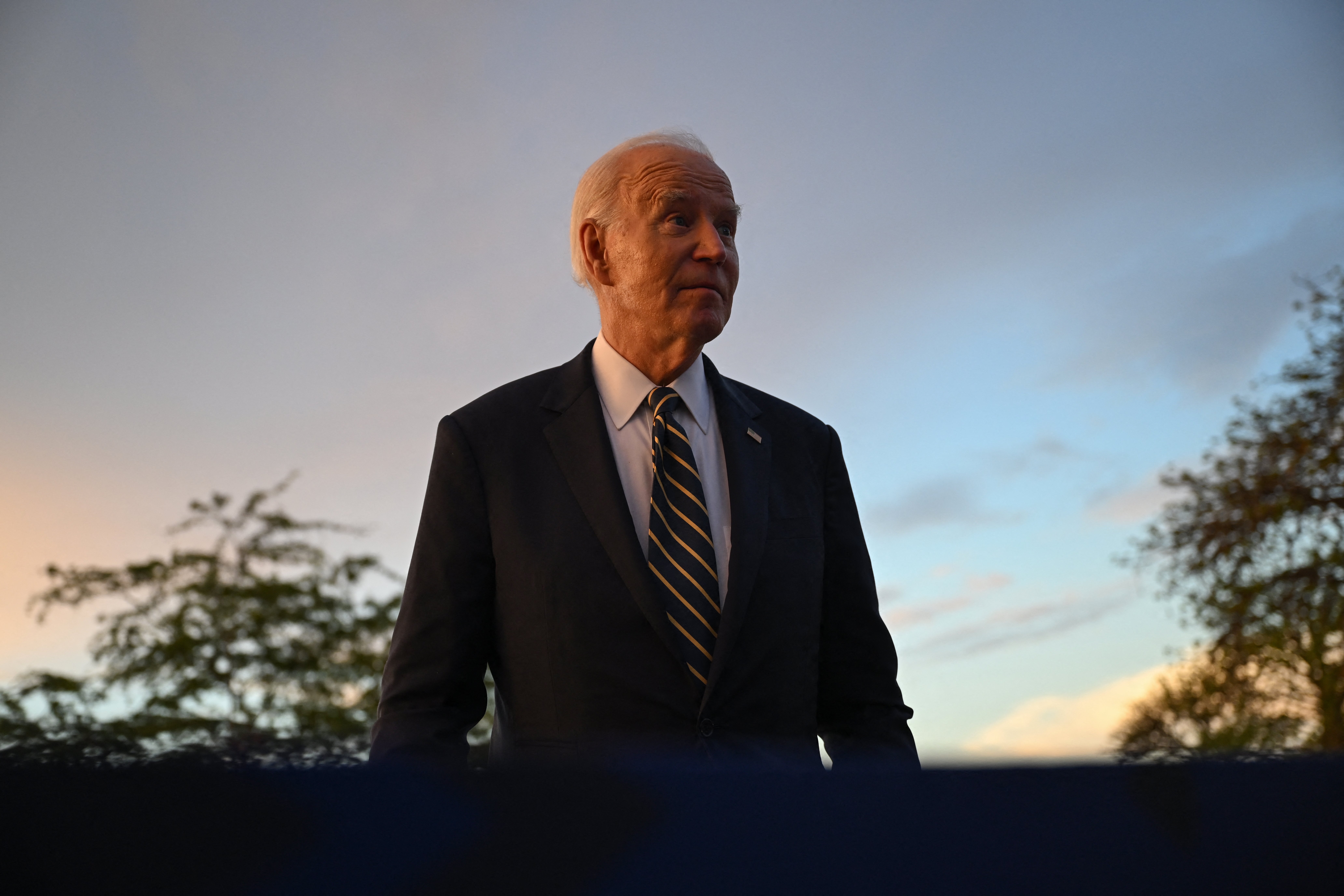What are preemptive pardons? Reports Biden is considering granting them to Trump enemies
Biden administration concerned Trump and his associates may launch probes that would harm the reputations and finances of their targets
Your support helps us to tell the story
From reproductive rights to climate change to Big Tech, The Independent is on the ground when the story is developing. Whether it's investigating the financials of Elon Musk's pro-Trump PAC or producing our latest documentary, 'The A Word', which shines a light on the American women fighting for reproductive rights, we know how important it is to parse out the facts from the messaging.
At such a critical moment in US history, we need reporters on the ground. Your donation allows us to keep sending journalists to speak to both sides of the story.
The Independent is trusted by Americans across the entire political spectrum. And unlike many other quality news outlets, we choose not to lock Americans out of our reporting and analysis with paywalls. We believe quality journalism should be available to everyone, paid for by those who can afford it.
Your support makes all the difference.Outgoing President Joe Biden and his White House team are considering issuing preemptive pardons to protect those they believe may be targeted for retribution by President-elect Donald Trump.
The move is mostly being discussed among White House attorneys, but the president has also spoken about the possible measure with some of his aides, two sources have said, according to the Asocciated Press.
A decision has yet to be made on the issue and Biden may still choose not to issue any preemptive pardons.
Pardons are usually issued to those who have been accused of a specific crime and those who have already been convicted. But Biden’s White House is looking at is the possibility of issuing pardons to people who haven’t been investigated or charged with anything.
The Biden administration is concerned that Trump and his associates may launch baseless probes that would harm the reputations and finances of their targets. The use of pardons to preempt investigations and prosecutions would be a major expansion in how the pardon power is used.
Some close to Biden are concerned that it could lead to an even more expansive use of similar pardons . by Trump. It also raised concerns that issuing preventive pardons would play into claims that the recipientshave committed troubling actions that would have required immunity to avoid prosecution.
Among those who could receive a preemptive pardon is the former director of the National Institute of Allergy and Infectious Diseases Dr. Anthony Fauci. He played a large role in the response to the COVID-19 pandemic, but has become a target of conservatives outraged at mask mandates and vaccination efforts.

Other recipients could include witnesses in Trump’s trials, both criminal and civil, as well as officials in the Biden administration who have angered Trump and his associates. Trump baselessly declared last year that chairman of the Joint Chiefs of Staff General Mark Milley had committed treason and should be put to death. Milley later responded that he was taking precautions to protect his safety.
“He’ll start throwing people in jail, and I’d be on the top of the list,” Milley, who has called Trump “fascist to the core,” told The Atlantic in a profile of the four-star general.
One source told the AP that some former officials have contacted the Biden White House to seek some kind of protection ahead of Trump’s inauguration next month.
This latest developments follow Biden’s action to pardon his son Hunter following his convictions on federal gun and tax charges. Biden chose to issue a broad pardon, including for any possible federal offense during a period of 11 years. The president was concerned that Trump and his allies would go after his son for other offenses to hit back at him.
The Hunter pardon could be a model for other pardons issued by the Biden White House before his departure.
Trump staffers also considered preemptive pardons for the then-president and his supporters following their attempt to overturn the results of the 2020 election, ending with the Capitol riot on January 6, 2021.
In 1974, President Gerald Ford handed his predecessor, the disgraced Richard Nixon, a “full, free, and absolute pardon” following the Watergate scandal and Nixon’s resignation. The pardon proclamation stated that Ford believed a possible trial would “cause prolonged and divisive debate over the propriety of exposing to further punishment and degradation a man who has already paid the unprecedented penalty of relinquishing the highest elective office of the United States.”
Politico initially reported that Biden was considering preemptive pardons.
Trump critic and George W. Bush White House ethics lawyer Richard Painter told the AP that he reluctantly backed the use of preemptive pardons, hoping that it would “clean the slate” for Trump and urge him to focus on governing instead of spending time going after his targets for retribution.
“It’s not an ideal situation at all,” he said. “We have a whole lot of bad options confronting us at this point.”
But Painter also noted that there could be “blatant illegal conduct over the next four years, and he [Trump] can go out and pardon his people before he leaves office.”
Painter added: But if Trump is “going to do that, he’s going to do that anyway regardless of what Biden does.”

Join our commenting forum
Join thought-provoking conversations, follow other Independent readers and see their replies
Comments